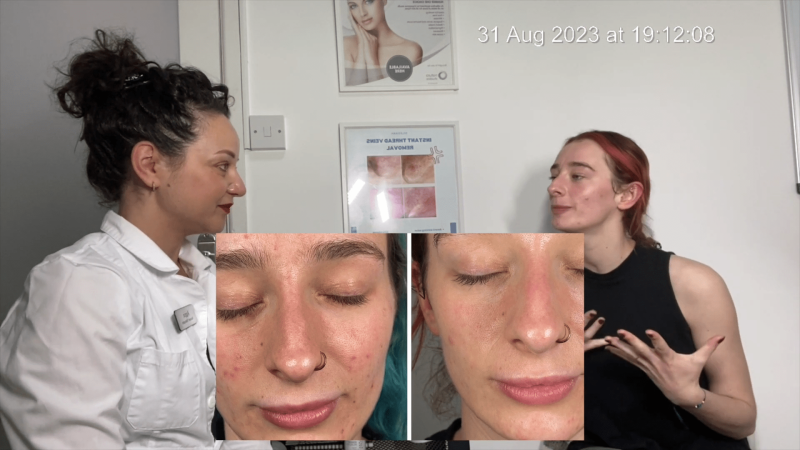In a stunning display of skill and knowledge, Aggie Singh clinched the title of the Aesthetician of the year at The Skin Games Atlanta 2024, a prestigious event that showcases the best in skincare innovation and expertise. Her victory is a testament to her profound understanding of the skin and its intricate workings. Post-victory, Aggie has generously shared her insights on a crucial aspect of skincare: the prevention of an impaired skin barrier.
The Vital Role of the Skin Barrier
The skin barrier, primarily composed of the stratum corneum, acts as the body’s frontline defense, protecting against environmental aggressors, pathogens, and moisture loss. When this barrier is compromised, it can lead to a host of skin issues including dryness, irritation, and increased sensitivity. Aggie emphasizes that maintaining a robust skin barrier is essential for overall skin health and longevity.
Key Practices for a Healthy Skin Barrier
1. Hydration Inside and Out
Aggie’s foremost advice is to ensure adequate hydration. “Hydrating the skin and yourself as a whole cannot be overstated,” she asserts. Water is essential for maintaining the skin’s elasticity and resilience. Proper hydration aids in the transportation of nutrients to skin cells and the removal of toxins. Aggie recommends using hydrating products containing humectants like hyaluronic acid and glycerin, which attract moisture to the skin. Coupled with drinking plenty of water, this approach helps maintain the skin’s plumpness and suppleness.
2. Daily Use of Antioxidants
Antioxidants are critical in protecting the skin from oxidative stress caused by free radicals. “Incorporating antioxidants into your daily regimen is a game-changer,” Aggie advises. Free radicals, generated by UV exposure, pollution, and other environmental factors, can weaken the skin barrier by damaging cell structures. Topical antioxidants such as vitamins C and E, ferulic acid, and niacinamide help neutralize these harmful molecules, thereby preserving the integrity of the skin barrier.
3. Locking in Moisture with Essential Fatty Acids
Essential fatty acids (EFAs), particularly Omega-3s, are integral to maintaining a strong skin barrier. “Using products rich in EFAs helps lock in moisture and provides the lipids necessary for a healthy barrier function,” Aggie explains. EFAs contribute to the formation of the lipid matrix in the stratum corneum, which is crucial for preventing transepidermal water loss (TEWL). Consuming a diet rich in Omega-3s, found in foods like flaxseeds, walnuts, and fatty fish, alongside topical applications, ensures the skin is fortified from the inside out.
Identifying and Addressing Causes of Impaired Skin Barrier
Understanding the underlying causes of an impaired skin barrier is essential for effective prevention and treatment. Aggie notes that many individuals unwittingly perpetuate their skin issues by not identifying these causes.
Common Causes of Impaired Skin Barrier:
- Overuse of Stripping Products: Items like baby wipes and micellar water can strip the skin of its natural oils, leading to a weakened barrier.
- Excessive Use of Active Ingredients: Overloading the skin with potent actives, such as retinoids and acids, can disrupt the barrier, causing irritation and sensitivity.
- Skin Dehydration: Inadequate moisture levels impair the skin’s ability to function optimally, leading to a compromised barrier.
- Lack of Essential Fatty Acids: A diet deficient in EFAs can result in a weakened lipid matrix, making the skin more prone to TEWL and damage.
The Cellular Perspective
At a cellular level, the skin barrier’s health begins with the basal layer, where mother cells give rise to daughter cells. These cells move up through the epidermal layers, eventually becoming corneocytes, which are integral to the skin barrier. Aggie explains, “A good quality of mother cell will produce a good quality of baby cells.” The quality of these cells determines the strength and effectiveness of the barrier.
Corneocytes, though often thought of as ‘dead’ cells, play a crucial role in signaling and protecting the underlying layers. If the barrier is compromised, this signaling is disrupted, potentially leading to a cascade of issues where corneocytes fail to protect the skin adequately.
Conclusion
Aggie Singh’s expertise underscores the importance of a holistic approach to maintaining a healthy skin barrier. By focusing on hydration, the use of antioxidants, and incorporating essential fatty acids, individuals can significantly enhance their skin’s resilience and function. Moreover, understanding and addressing the root causes of barrier impairment is vital for effective skin care. As Aggie aptly puts it, “Finding the cause of an impaired skin barrier is crucial; otherwise, you will be going in circles trying to repair it.”
In the world of skincare, where trends come and go, Aggie’s scientifically grounded advice offers a timeless approach to achieving and maintaining healthy, beautiful skin.

